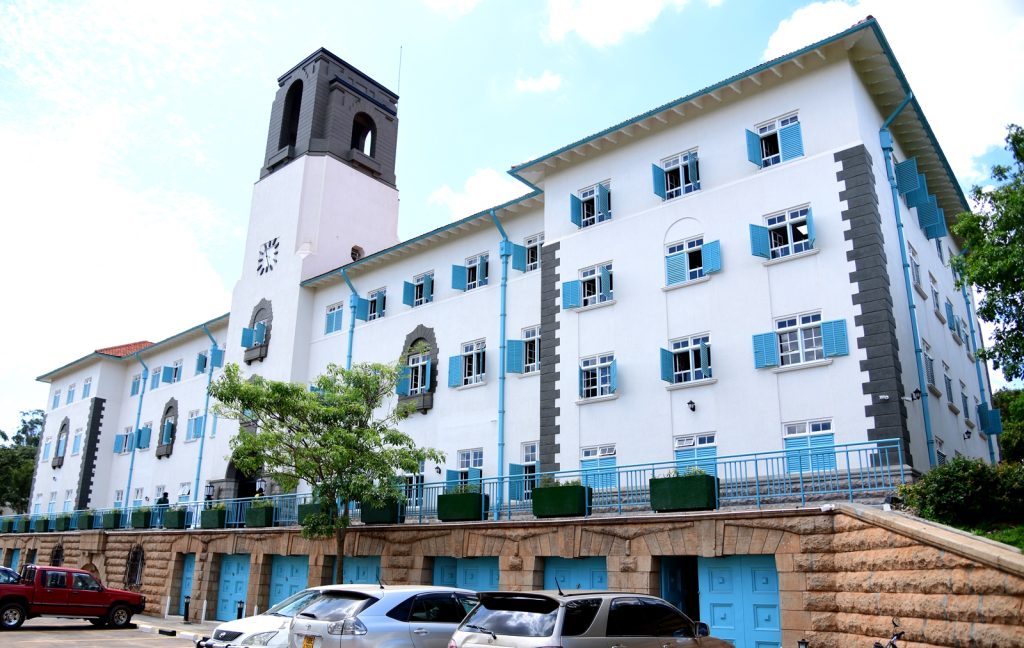The 3rd Clinical Legal Education Moot Before Judges
The 3rd Annual CLE Moot competition took place on Thursday 25th May 2017 at 2pm at the High Court of Uganda, Kampala, in Courtroom 1.
The Moot was presided over by a panel of Judges that included, Hon. Lady Justice Esther Kisakye, Hon. Lady Justice Lydia Mugambe and Hon. Lady Justice Patricia Basaza-Wasswa.
The hypothetical revolved around issues of sexual and reproductive health rights of children. The scenario was set in The Republic of Mbanda has a population of 40 million people of which 51% is female and 55% comprises of persons below the age of 18. 23% of the population are between the ages of 18 and 30.The country has a fertility rate of 5.8 children per woman and a population growth rate of 3%, being one of the highest in the world. Mbanda is classified as a Less Developed Country.
In the debrief that followed the moot, the judges commended the staff of the school of Law for the time taken to prepare the students for the moot. Students were encouraged to adopt more skills in research, legal writing and presentation.
It was indicated that the program under the public interest law clinic presents a very good training ground for the law students and that if resources allow, more and more students should be taken on.
All the participants were awarded certificates of participation while the best oralists were also recognized.
Moot court by students in the Clinical Legal Education program is one of the hands on practical ways through which PILAC is changing the training of lawyers orienting them into social justice lawyers. The moot court is one such activity where the students had an opportunity to test their skills before real judges at the High court albeit debating on an imaginary scenario with the objectiveof putting to test the theories learnt as well as skills in becoming good orators, undertake research and presentation before court.
In PILAC, with the support of the Moots Coordinator, MsAhumuza Diana Ateenyi. Students are continually guided and in the process they acquire research skills, master human rights systems and norms. The activity empowers young law students with practical skills to engage, present and argue human rights cases before competent national, regional and international human rights bodies/courts.



